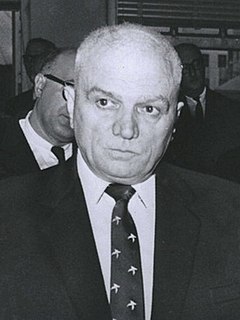A Quote by David Gemmell
The nature of a coward is to avoid death. If such a man courts peril there can be only two reasons. Either he is not a coward at all or there is no danger.
Related Quotes
I believe there is no other difference between those who are called courageous and those who are branded craven than that the second are fearful before the danger and the first after it. No one can be much frightened, certainly, during a period of great and immanent peril -- the mind is too much concentrated on the thing itself, and on the actions necessary to meet or avoid it. The coward is a coward, then, because he has brought his fear with him; persons we think cowardly will sometimes amaze us by their bravery, if they have had no forewarning of their danger.
Every decent man of our age must be a coward and a slave. That is his normal condition. Of that I am firmly persuaded. He is made and constructed to that very end. And not only at the present time owing to some casual circumstance, but always, at all times, a decent man is bound to be a coward and a slave.



































